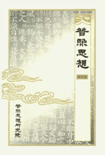청허 휴정이 조선시대 뿐만 아니라 근현대 한국불교의 역사와 가치를 규명하는데 절대적인 영향력을 지니고 있는 것은 널리 알려진 사실이다. 특히 임진왜란 이후의 조선불교는 고대와 중세의 불교사상이나 문화와는 달리 탄압과 소외의 폐허에서 재정립되었고, 또 다른 형태로 발전하기에 이르렀다. 청허 휴정은 이 기나긴 여정의 출발점에 있었으며 유구한 한국불교의 수행 전통 위에서 새로운 불교의 근간을 마련하였고, 이 노력은 오늘날 한국불교계가 존립하고 발전을 위한 指南이 되었다. 청허 연구는 근대학문의 직접적인 영향을 받았던 일제강점기부터 지속적으로 시도되었다. 그 자체가 불교계뿐만 아니라 ‘護國’이나 ‘民族’이라는 時宜性과 정체성과도 강하게 결부되었다. 때문에 청허 연구는 학술적인 측면 뿐만 아니라 해방 이후 이데올로기와 관련되어 그 객관적인 가치가 부족했고, 체계성을 갖추는 일 역시 소홀했다. 조선시대 불교의 측면에서 청허의 가치를 규명하기란 더더욱 어려운 일이었다. 그러나 2000년대 초부터 조선시대 불교가 주목받기 시작하면서 청허에 대한 관심이 고조되었다. 조선불교의 원류를 찾기 위해서 청허 연구는 반드시 선행되어야 했기 때문이다. 더욱이 이전 시기와는 다른 조선불교의 사상이나 수행, 신앙과 인물 등에 관한 조선불교의 총론과 각론은 청허를 제외하고는 완성되기 어렵다. 조선시대 불교 연구가 진행될수록 청허에 대한 단편적인 연구에서 생애와 저술, 사상, 법통, 의승활동 및 표충사, 그리고 그의 禪詩를 중심으로 한 문학 분야에 이르기까지 광범위하고도 세부적으로 연구되고 있다. 이 글은 그동안 학계에서 진행한 청허 휴정 연구의 흔적을 살폈다. 조선시대 불교에 관한 연구성과를 정리한 논고는 일부 소개되었지만 500여 편에 달하는 청허와 관련된 연구성과는 아직 미흡하다. 필자는 청허 사상이자 조선불교 사상과 수행의 기초이기도 한 청허 연구의 성과를 살핀 경험이 있다. 이 글은 청허의 선사상과 선풍, 그리고 법통설에 대한 학계의 성과를 살피고 과제를 검토하였다.
It is a widely known fact that Cheongheo Hyujeong has an absolute influence on the history and values of modern Korean Buddhism as well as the Joseon Dynasty. In particular, Joseon Buddhism after the Japanese Invasion of Korea was re-established in the ruins of oppression and alienation, unlike the Buddhist ideology and culture of ancient and medieval times, and developed into another form. Cheongheo Hyujeong was at the starting point of this long journey and laid the foundation for a new Buddhism based on the long tradition of Korean Buddhism. This effort became a milestone for the existence and development of the Korean Buddhist community today. Cheongheo research has been continuously attempted since the Japanese colonial period, when it was directly influenced by modern universities. It was strongly connected not only with the Buddhist world, but also with the trends and identities of the times such as 'national protection(護國)' and 'nation(民族)'. Therefore, the study of Cheongheo lacked objective value in relation to ideology after liberation as well as academic aspect, and neglected to establish a system. It was even more difficult to determine the value of Cheongheo from the perspective of Buddhism in the Joseon Dynasty. However, from the early 2000s, as Buddhism began to attract attention during the Joseon Dynasty, interest in Cheongheo increased. This is because the study of Cheongheo had to be preceded in order to find the origin of Joseon Buddhism. Moreover, it is difficult to complete the general discourses and discourses of Joseon Buddhism on the ideas, practices, beliefs and characters of Joseon Buddhism, which are different from the previous period, except for Cheongheo. As the study of Buddhism in the Joseon Dynasty progressed, it is being studied extensively and in detail, from a fragmentary study of Cheongheo, to his life and writings, thought, dharma lineage, activities of Buddhist Monk Troops and Pyochungsa(表忠祠), and to the literary field centered on his poems. This article examines the traces of Cheongheo Hyujeong research conducted in the academic world. Although some articles have been introduced that summarize the research results of Buddhism in the Joseon Dynasty, research results related to Cheongheo, which amount to about 500, are still insufficient. The author has experience examining the results of the study of Cheongheo, which is the foundation of Chosun Buddhist thought and practice. This article examines the achievements of the academic community on Cheongheo's seon thoughts, and dharma lineage, and examines the tasks.
Ⅰ. 머리말
Ⅱ. 청허의 禪思想
Ⅲ. 청허의 禪風
Ⅳ. 청허의 法統
Ⅴ. 맺음말
(0)
(0)
